Published on
Updated on
Meet the Authors: “Flight of the Bumblebee”
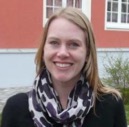 Nicole Miller-Struttmann, PhD., is an evolutionary ecologist at Webster University. As a post-doctoral Fellow at the University of Missouri, Dr. Miller-Struttmann co-authored the published research that is the basis of the Flight of the Bumblebee anchor text. “I fell in love with the teddy-bears of the insect world, bumble bees, when I was a graduate student. They are intelligent, fascinating, social insects. Many of them are also, unfortunately, declining. They are not alone; insects all over the world are struggling to survive. In collaboration with citizen scientists, we use non-lethal methods, such as acoustic monitoring and photo surveys, to figure out how we can help them. Insects are adaptable creatures. They can evolve relatively quickly, if we provide them the “space” to do so. In addition to my research, I work with teachers, gardeners, libraries, and more to rebuild habitats that will, hopefully, provide that opportunity.”
Nicole Miller-Struttmann, PhD., is an evolutionary ecologist at Webster University. As a post-doctoral Fellow at the University of Missouri, Dr. Miller-Struttmann co-authored the published research that is the basis of the Flight of the Bumblebee anchor text. “I fell in love with the teddy-bears of the insect world, bumble bees, when I was a graduate student. They are intelligent, fascinating, social insects. Many of them are also, unfortunately, declining. They are not alone; insects all over the world are struggling to survive. In collaboration with citizen scientists, we use non-lethal methods, such as acoustic monitoring and photo surveys, to figure out how we can help them. Insects are adaptable creatures. They can evolve relatively quickly, if we provide them the “space” to do so. In addition to my research, I work with teachers, gardeners, libraries, and more to rebuild habitats that will, hopefully, provide that opportunity.”
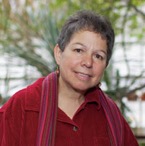 Candace Galen, PhD., led the research team at the University of Missouri that developed an important yet inexpensive acoustic listening system using small microphones in the field to monitor bees in flight, making it possible to monitor bee activity and subsequent pollination of crops. “Causes of pollinator decline are complex and include diminishing flower resources, habitat loss, climate change, increased disease incidence and exposure to pesticides, so pinpointing the driving forces remains a challenge,” said Dr. Galen, professor of Biological Science. “For more than 100 years, scientists have used sonic vibrations to monitor birds, bats, frogs and insects. We wanted to test the potential for remote monitoring programs that use acoustics to track bee flight activities.”
Candace Galen, PhD., led the research team at the University of Missouri that developed an important yet inexpensive acoustic listening system using small microphones in the field to monitor bees in flight, making it possible to monitor bee activity and subsequent pollination of crops. “Causes of pollinator decline are complex and include diminishing flower resources, habitat loss, climate change, increased disease incidence and exposure to pesticides, so pinpointing the driving forces remains a challenge,” said Dr. Galen, professor of Biological Science. “For more than 100 years, scientists have used sonic vibrations to monitor birds, bats, frogs and insects. We wanted to test the potential for remote monitoring programs that use acoustics to track bee flight activities.”
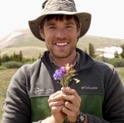 Zachary Miller, Graduate Research Assistant, at University of Missouri: “I first became interested in bees during my service as a Peace Corps Volunteer in Paraguay, South America. I spent countless hours working with honeybee colonies and was captivated by their behavior and cooperation. I found it incredible that they were able to construct such sophisticated dwellings all from tiny drops of nectar and dabs of pollen collected from flowers. This work blossomed into a deeper awareness and fascination of the diversity of bees in the world and the plants that depend on them for pollination. It also opened my eyes to the dependence of humans on the work of pollinators. Now, I study pollination and bumblebee behavior in hopes to help understand how bees and flowers are reacting to a changing planet and how humans can continue receive the fruits of the labor of these marvelous little creatures.”
Zachary Miller, Graduate Research Assistant, at University of Missouri: “I first became interested in bees during my service as a Peace Corps Volunteer in Paraguay, South America. I spent countless hours working with honeybee colonies and was captivated by their behavior and cooperation. I found it incredible that they were able to construct such sophisticated dwellings all from tiny drops of nectar and dabs of pollen collected from flowers. This work blossomed into a deeper awareness and fascination of the diversity of bees in the world and the plants that depend on them for pollination. It also opened my eyes to the dependence of humans on the work of pollinators. Now, I study pollination and bumblebee behavior in hopes to help understand how bees and flowers are reacting to a changing planet and how humans can continue receive the fruits of the labor of these marvelous little creatures.”
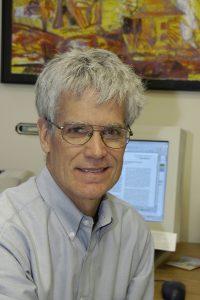 William (Bill) Folk, PhD., is a professor of Biochemistry at the University of Missouri. “I first became aware of bees as a child in Alaska, when I stumbled across a nest in the ground and I was stung many times by the angry bees before my mother came to my rescue. As a high school student in Houston Texas, I collected insects and studied fruit fly genetics as science projects. That introduction to how genes determine our shape and behavior fascinated me, and throughout my career as a scientist I’ve studied genes in bacteria, plants, animals and humans. While those studies keep me very busy, I do enjoy getting outside – and help at our daughter’s goat farm where we keep honeybee hives, and I work to improve the habitat for native bees. We are finishing a large barn quilt that will have a representation of bees visiting flowers – and will soon have it up!
William (Bill) Folk, PhD., is a professor of Biochemistry at the University of Missouri. “I first became aware of bees as a child in Alaska, when I stumbled across a nest in the ground and I was stung many times by the angry bees before my mother came to my rescue. As a high school student in Houston Texas, I collected insects and studied fruit fly genetics as science projects. That introduction to how genes determine our shape and behavior fascinated me, and throughout my career as a scientist I’ve studied genes in bacteria, plants, animals and humans. While those studies keep me very busy, I do enjoy getting outside – and help at our daughter’s goat farm where we keep honeybee hives, and I work to improve the habitat for native bees. We are finishing a large barn quilt that will have a representation of bees visiting flowers – and will soon have it up!
Meet the Authors; “Earth and Human Body Systems”
 Eric D. Queathem: Eric’s passion for science led him to attend the University of Missouri, where he is majoring in biochemistry. He plays baseball and enjoys hiking and swimming, but most of all, loves doing research in the laboratory. Presently, he is studying plants used in management of pain in muscles and joints, and also how dietary choices affect obesity and diabetes. When he finishes at Mizzou, Eric plans to attend graduate school and continue doing medical research. He supports his education with scholarships and by working in restaurants. He volunteered to work in Linking Science and Literacy for All Learners, to help communicate the importance of understanding how the warming climate will affect our lives.
Eric D. Queathem: Eric’s passion for science led him to attend the University of Missouri, where he is majoring in biochemistry. He plays baseball and enjoys hiking and swimming, but most of all, loves doing research in the laboratory. Presently, he is studying plants used in management of pain in muscles and joints, and also how dietary choices affect obesity and diabetes. When he finishes at Mizzou, Eric plans to attend graduate school and continue doing medical research. He supports his education with scholarships and by working in restaurants. He volunteered to work in Linking Science and Literacy for All Learners, to help communicate the importance of understanding how the warming climate will affect our lives.
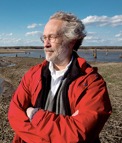 William Gutowski, PhD., Education: Yale, Astronomy and Physics, 1976 PhD., Massachusetts Institute of Technology, Meteorology, 1984. Dr. Gutowski is professor of Meteorology at Iowa State University. His research concentrates on the water cycle in regional climate and community responses to climate change. Because of the wide range of spatial and temporal scales, his research program entails a variety of modeling and data analysis approaches of North American, African, Arctic and East Asian climates. He collaborates with scientists in these regions, in research that includes the social sciences, humanities and physical sciences.
William Gutowski, PhD., Education: Yale, Astronomy and Physics, 1976 PhD., Massachusetts Institute of Technology, Meteorology, 1984. Dr. Gutowski is professor of Meteorology at Iowa State University. His research concentrates on the water cycle in regional climate and community responses to climate change. Because of the wide range of spatial and temporal scales, his research program entails a variety of modeling and data analysis approaches of North American, African, Arctic and East Asian climates. He collaborates with scientists in these regions, in research that includes the social sciences, humanities and physical sciences.
 William (Bill) Folk, PhD., Education: Rice University, Biochemistry, 1966; PhD Stanford University, Biochemistry 1971. Dr. Folk is professor of biochemistry at the University of Missouri, where he enjoys working with students and other scientists and educators. He co-directs the Linking Science and Literacy for All Learners program and conducts research with medicinal plants. Throughout much of his career as a scientist he has been interested in how organisms adapt to changes in the environment. His father, a geologist, introduced him to the study of fossils in rock samples and how changes in Earth Systems can be determined by science. Bill also enjoys working outside at the family goat farm, where he is improving habitats for pollinators by planting native wildflowers, shrubs and trees.
William (Bill) Folk, PhD., Education: Rice University, Biochemistry, 1966; PhD Stanford University, Biochemistry 1971. Dr. Folk is professor of biochemistry at the University of Missouri, where he enjoys working with students and other scientists and educators. He co-directs the Linking Science and Literacy for All Learners program and conducts research with medicinal plants. Throughout much of his career as a scientist he has been interested in how organisms adapt to changes in the environment. His father, a geologist, introduced him to the study of fossils in rock samples and how changes in Earth Systems can be determined by science. Bill also enjoys working outside at the family goat farm, where he is improving habitats for pollinators by planting native wildflowers, shrubs and trees.